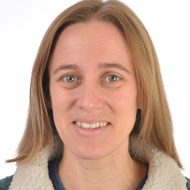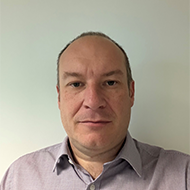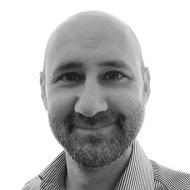Monica is a lecturer in Applied Environmental Statistics at Cranfield University, with an expertise on design of robust monitoring programmes for environmental variables. She carries out a wide range of projects, including those for governmental organisations and research councils. Her research has been used in wide-range of ways including to develop guidelines for freshwater ecosystem assessment and detection of contaminants in wheat. Monica also lectures on statistics, econometrics and environmental science and acts as a supervisor of MSc and PhD projects.
After completing a PhD focusing on the design of sampling strategies for rivers using geostatistical techniques, Monica undertook several post-doctoral research projects, including an EnergyScapes NERC project on the assessment of synergies between ecosystem services and renewable energy production. She was promoted to lecturer following two grants awarded for her work on the development of a remote controlled boat for fish passage assessment and a robust statistical framework for appraisal of floodplain restoration.
The best aspect of her job is the applied nature of her research, results from which are used to inform environmental policy and management decisions. She also enjoys the fieldwork she does - which includes investigating freshwater ecosystems to assess a number of characteristics - and the interaction she gets with students whilst acting as their project supervisor.
Monica's career within the environmental sciences has allowed her to undertake several exciting projects, including the study of the effect of large dams in rivers in the Pyrenees. The study, commissioned by the Civil engineering research agency in Spain, allowed a lot of fieldwork in the catchments of Noguera Pallaresa and Noguera Ribagorzana (Lleida, Pyrenees). Another study on sediment retention in two lakes in the Alps (Salzburg, Austria) as a result of a receding glacier, involved walking through the glacier to assess the sources of sediment feeding into the two lakes.
Monica was drawn to the IES because of the commitment to the five core values of professionalism - equality and equity, sound science, integrity and quality assurance responsibility - and the assurance that members meet core professional values whilst proving affinity and love of science and nature. She believes few organisations share the IES's concern for the environment and considers the "interconnectedness" promoted by the IES - the belief that facilitating knowledge transfer will make better professionals and thus increase the positive impact on the natural world - reflects the multidisciplinary approach to environmental science which drives her to set new research projects. Monica became a Chartered Environmentalist with the institution in order to have recognition for adhering to a strict code of environmental ethics, and to provide professional guarantee for external sponsors of her skills and knowledge.
In the future, Monica plans to develop robust monitoring programmes for freshwater ecosystems by coupling state of the art technology for data capture and advanced statistical methods for data analysis. This technology would include the use of acoustic current meter profilers (ADCP) and unmanned aerial vehicles (UAVs). Data would be gathered using aerial, water-born methods to have a comprehensive characterisation of river processes. Advanced statistical methods for data analysis include data fusion techniques, geostatistics, Bayesian statistics and time series analysis. Further to this, she plans to work in collaboration with prestigious scientific institutions and present at key national and international conferences.




